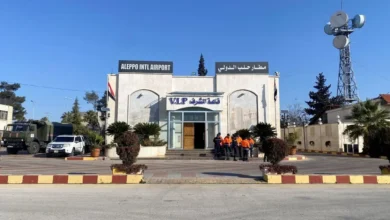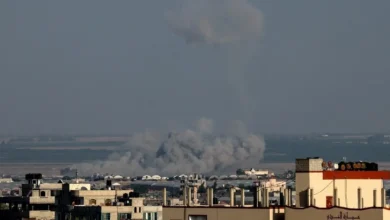Experts react to US, UK strikes against Yemen’s Houthis as fear of Mideast war grows
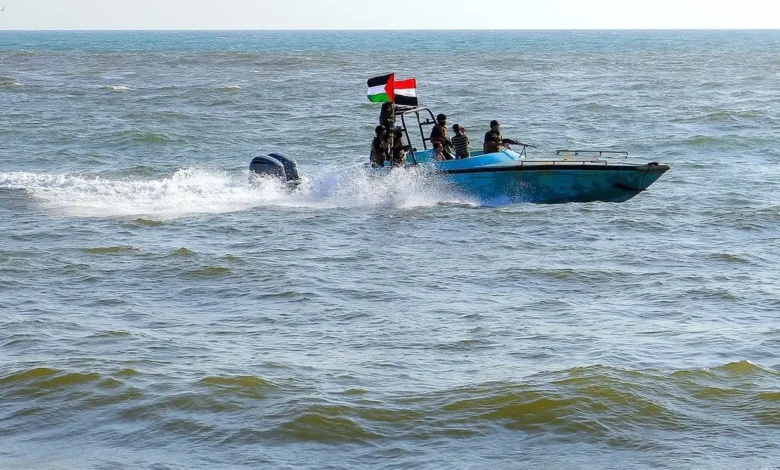
While the targeted strike led by US and UK forces to deter “brazen” Houthi aggression in the Red Sea was necessary to stand up to the militant group and deter further destabilization in the key shipping route, according to experts and government officials, some analysts say the attack will harm a potential permanent ceasefire and not do much to deter the Iran-backed group.
The US military said, with support from the UK and other allies, that it carried out over a dozen strikes on Houthi targets in Yemen overnight Thursday, raising concern over a Middle East-wide spill of the conflict currently raging between Israel and Hamas in Gaza.
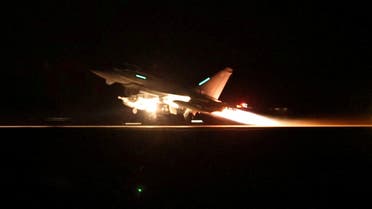
The attack against the Houthis came after the militant group started bombarding ships in the Red Sea, which they say is in response to relentless Israeli bombardment in Gaza in its war against another Tehran-backed group, Hamas.
The Palestinian Hamas militants breached the Israeli border and launched an attack on October 7, killing 1,200 and taking over 200 hostages. In response, Israel escalated the decades-old conflict into an all-out war, indiscriminately killing over 23,000 Palestinians.
Israel is currently facing a lawsuit at the International Court of Justice brought on by South Africa, which is calling the military operation a state-run genocide. Tel Aviv has rubbished this claim and is facing its day in court on Friday.
Response to ‘brazen attacks’
A senior political scientist at RAND Corporation and Director of the Strategy and Doctrine Program of RAND Project Air Force, Raphael S. Cohen, said on Friday that the US and UK had no choice but to retaliate against the Houthis’ “brazen attacks.”
“In the short run, I think the Biden administration needed to respond militarily. It had warned the Houthis repeatedly over the last several months not to attack international shipping, and rather than backing down, the Houthi attacks only have gotten more brazen,” Cohen said.
“And so, as Biden said in his remarks, the administration needed to demonstrate both to the Houthis but also to the other maligned actors in the region that such behavior is not acceptable and will prompt an American response.”
The Houthis on Friday said the attack claimed five lives and promised to retaliate. A spokesperson of the militant group said there was no justification for the US-Britain attack on Yemen and that the Iran-backed group will continue targeting ships heading toward Israel.
“As for the warning from the Iranians and others about escalation, I would note that regional tensions were already rising well prior to October 7, as seen by the Houthi’s behavior but also in the rising number of attacks on US bases in Iraq and throughout the region,” RAND’s Cohen said.
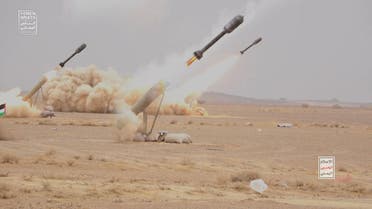
“If Iran was really worried about American actions prompting regional escalation, then it should instruct its proxies – Houthis, Kata’ib Hezbollah, and others – to cease attacking Americans and American allies. As best as I can tell, they have yet to do so.”
“That all said, while I think the US military response was necessary, I’m more skeptical that any single set of airstrikes will deter the Houthis – or the Iranians for that matter.”
Effectiveness in question
A senior associate fellow in international security studies at the Royal United Services Institute for Defense and Security Studies reiterated the importance of a ceasefire between Israel and Hamas.
“It is rather extraordinary that the US and the UK bomb Yemen at this present moment, when the security situation in the region calls for a de-escalation moment, not a foray into a wider conflict,” Dr. H.A. Hellyer said on Friday.
“The Houthis are not a positive force in the region, but it has been abundantly clear why they began these disruptions to shipping lanes – the Israeli bombardment of Gaza and the refusal to implement a ceasefire,” Hellyer, who is also a non-resident scholar at the Carnegie Endowment for International Peace, said.
“That ceasefire is in the British and the American national interest, as well as a moral imperative, but we have refused to move for it. If we had done, there would have been no disruptions to maritime movements, and we still have that option.”
“Instead, I fear we are adding fuel to the fire, and we cannot be sure of where it will go. Moreover, I am not convinced that this will be effective in any case, the Houthis aren’t going to stop as a result of this strike, in my opinion,” the expert added.
Many in the US government have voiced concerns over the attack having the potential to break a fragile ceasefire currently holding in Yemen – a status for which American officials pushed.

‘Send a message’ to Iran, proxies
In addition to protecting shipping lines, the strikes are meant to “send a message” to Iran and its proxies, an associate fellow with the Chatham House Middle East and North Africa Program said on Friday.
“…the strikes are framed as an act of self-defense on the back of the Houthi attacks against American and British naval ships earlier this week. However, essentially, they are meant to send a message to Iran to reign in its proxies and as a warning that these strikes could be expanded to include other militias in Lebanon, Syria and Iraq as well,” Ahmed Aboudouh, who is also a non-resident fellow with the Atlantic Council and heads the China Studies research unit at the Emirates Policy Center, said.
Aboudouh said the short-term impact of these strikes are unlikely to deter the Houthis and can worsen the situation.
“In the short term, they are unlikely to deter the Houthis and might worsen the situation. Because the ultimate objective is to achieve deterrence and maintain US prestige and power in the region, they are likely to continue as the Houthis show resilience and defiance.”
“This means, turning the Red Sea and the Gulf of Aden region into an increasingly militarized area. This, in turn, will spike insurance premiums for shipping and increase the cost as more ships diverge to the longer Cape of Good Hope route, with direct implications on food supply chains and global inflation,” he added.
As of December, Yemen’s internationally recognized government welcomed UN-led efforts to end the country’s civil war after the warring parties committed to take steps toward a ceasefire.
Yemen, the poorest Arab country, is largely observing a UN-backed ceasefire from 2022. The truce was supposed to expire in October 2022, but fighting has mostly calmed.
The latest attack stands the risk of renewing violence, Aboudouh fears.
“It could also prompt the Houthis to withdraw from peace negotiations with Saudi Arabia in Yemen. While Saudi Arabia and other Gulf states tacitly support the strikes to prevent the Houthis from wreaking havoc with impunity and limit their ability to increase their leverage in the ongoing Yemeni peace negotiations, they worry about the impact of expanding the Gaza war into a regional conflagration – one that could undermine their security and de-escalation with Iran,” he said.
In the long term, Aboudouh sees a strategic challenge to sea-born trade and navigation in the Red Sea and Bab al-Mandab.
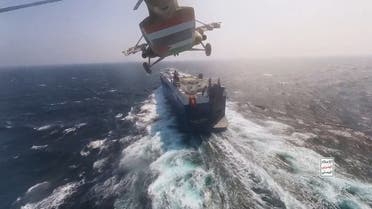
“The region will witness more Western or regional naval deployments and reduced traffic. If the situation worsens, we may see Western or Arab troops deployed to drive the Houthis out of Hodeidah Port and some other bases on the Red Sea coast,” the expert said.
Global recognition of Houthis
The fallout could also positively impact the global recognition of the Houthis as the face of an anti-Israeli or anti-Western movement, he added.
“The Houthis profile will rise as an anti-Israel and anti-Western resistance movement and may gain the upper hand over the internationally recognized government in Yemen. They may be successful in banking on anti-American sentiment rife now across the region to promote themselves as real supporters of the Palestinian cause.”
“There is a serious concern the escalation may end the de-escalation moment between Iran and other Gulf States since Iran’s position may be boosted, having, so far, managed to pressure the US position on Gaza and score real gains regionally.”
“Ultimately, further escalation may force more US military involvement in the Middle East, potentially creating more room to maneuver for China and Russia in Europe and the South China Sea to consolidate their strategic posture while the US is increasingly occupied elsewhere,” he concluded.
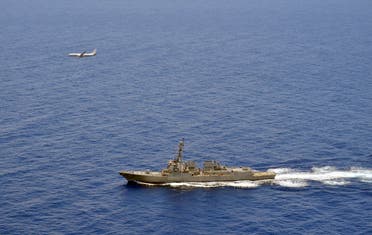
Russia, historically an influential player in the Middle East and a known backer of the Palestinians, Iran, Yemen, and other Arab states, condemned the attack, calling the US and UK “irresponsible.”
‘Violation of Yemen’s sovereignty’
“The US-UK air strike on Yemen is the most recent violation of Yemen’s sovereignty and air space since airstrikes were conducted for the first time by the US in 2002,” a Chatham House research fellow told Al Arabiya English on Friday.
“The strikes are symbolic in their effect and mostly are in response to shipping and insurance companies’ pressure on US and UK interests. The targeted areas and military sites are really only peanuts in the wider context of Houthi weapon and military capabilities – especially their maritime weapons. They are savvier, more prepared, and more equipped than anyone is really acknowledging,” Farea al-Muslimi, part of the think tank’s Middle East and North Africa Program, said.
“The strikes are not surprising as they come after the Houthis ‘pushed it’ too much in the Red Sea and ignored all the calls to calm the situation – including a private formal letter sent to the group leadership recently by the UK on behalf of the international community. The recent UN Security Council session provides the closest to an international cover for the strikes, but clearly, no other countries are interested in openly joining the US and UK on these strikes,” the Yemeni writer and activist said.
He also said the strikes will not stop the Houthis but rather lead to an increase in Red Sea attacks.
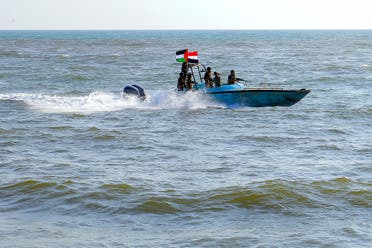
“They will likely expand their attacks to US and UK ships and bases across the Arabian Peninsula. The Houthis by now have missiles and weapons and technology that makes US military bases in the Gulf very possible to reach,” he said.
Al-Muslimi echoed Aboudouh’s concern over the fragile ceasefire in Yemen failing, further complicating an already dire civilian situation in the country.
“This will also complicate the long-awaited efforts by the UN to resume its peace process in Yemen. This unprecedented step of regionalizing the Yemen war is only going to make this job even harder,” al-Muslimi said.
“Air strikes and use of force overall don’t make a great difference in what is an extremely complicated country like Yemen. Major Yemeni parties, and even Houthis foes, could not and will not endorse these strikes – at least not publicly. There is overall a huge sentiment against outsiders in Yemen. More likely, this will only increase support for them across the Muslim world, among Western leftist groups, and encourage further regional and global escalations,” he added.
“The strikes will also have a tremendous impact on food security and goods in Yemen. A nightmare situation will only get worse,” he warned.
“It is not clear how Iran will respond but it definitely prefers to keep the Houthis as useful scapegoat allies while trying to save the Joker Card it has; Hezbollah. Since October 7, the Iranians have been mostly content to observe from a distance. While some think that China would also be happy to watch the West dragging itself into another bloody conflict, they have actually been suffering too from the disruption to the vital trade relying on the Red Sea routes just as much as the West.”
“Similarly, Arab countries like Egypt are conflicted and tied by a need to stand up to the Houthis whilst not wanting to stay silent on Israel and the US’s stance on Gaza,” he concluded.
US, allies claim ‘self-defense’
The US government and its allies have defended the attack by claiming it was conducted in “self-defense.”
“In response to continued illegal, dangerous, and destabilizing Houthi attacks against vessels, including commercial shipping, transiting the Red Sea, the armed forces of the United States and United Kingdom, with support from the Netherlands, Canada, Bahrain, and Australia, conducted joint strikes in accordance with the inherent right of individual and collective self-defense, consistent with the UN Charter, against a number of targets in Houthi-controlled areas of Yemen,” a joint statement from several countries, shared with Al Arabiya English, said.
“These precision strikes were intended to disrupt and degrade the capabilities the Houthis use to threaten global trade and the lives of international mariners in one of the world’s most critical waterways,” the statement said.
The Houthis have conducted more than two dozen attacks on commercial vessels since mid-November despite repeated warnings from the UN and most international governments.
“Our governments issued a joint statement on January 3, 2024, which called for the immediate end of illegal attacks and warned that malign actors would be held accountable should they continue to threaten lives, the global economy, and the free flow of commerce in the region’s critical waterways,” the joint statement continued.
“Despite this strong warning, attacks in the Red Sea have continued.”
The 44 allies reiterated that de-escalation was a priority in the Red Sea, warning further defense if commerce does not resume unobstructed.
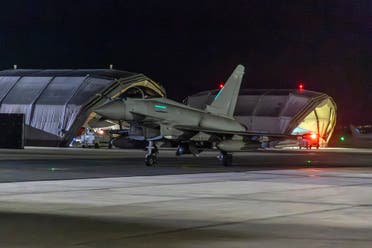
“Our aim remains to de-escalate tensions and restore stability in the Red Sea, but let our message be clear: we will not hesitate to defend lives and ensure the free flow of commerce in one of the world’s most critical waterways in the face of continued threats,” the joint statement said.
Meanwhile, a statement from the UK’s Ministry of Defense, shared , said: “The Royal Navy destroyer HMS Diamond has already been active alongside US and French warships in defending vital international shipping lanes against Houthi drones and missiles. Given the persistence of the Houthis in threatening merchant ships, several of which have already suffered damage, and the deliberate targeting of HMS Diamond and US Navy vessels on January 9, coalition forces identified key facilities involved in these attacks, and agreed to conduct a carefully coordinated strike to reduce the Houthis’ capability to violate international law in this manner.”
Four RAF Typhoon FGR4s, supported by a Voyager air refueling tanker, used Paveway IV guided bombs to conduct precision strikes on two of these Houthi facilities. One was a site at Bani in north-western Yemen allegedly used to launch reconnaissance and attack drones, and a number of buildings supposedly involved in drone operations were targeted by the aircraft.
The other location struck by the RAF aircraft was an airfield at Abbs.
“Intelligence has shown that it has been used to launch both cruise missiles and drones over the Red Sea. Several key targets at the airfield were identified and prosecuted by our aircraft,” the defense ministry said.
They added that the strikes were planned in a manner to “minimize any risks to civilians,” hence the decision to conduct the strikes during the night.
‘A blow’ to Houthi threat ability
“The detailed results of the strikes are being assessed, but early indications are that the Houthis’ ability to threaten merchant shipping has taken a blow, and our commitment to protecting the sea lanes, through which some 15 percent of the world’s shipping passes and which is vital to the global economy, has been amply demonstrated.”
A statement from the UK’s Prime Minister’s Office, shared with Al Arabiya English, said: “The Royal Air Force has carried out targeted strikes against military facilities used by Houthi rebels in Yemen.”

“In recent months, the Houthi militia have carried out a series of dangerous and destabilizing attacks against commercial shipping in the Red Sea, threatening UK and other international ships, causing major disruption to a vital trade route and driving up commodity prices. Their reckless actions are risking lives at sea and exacerbating the humanitarian crisis in Yemen.”
“Despite the repeated warnings from the international community, the Houthis have continued to carry out attacks in the Red Sea, including against UK and US warships just this week,” the statement said.
“This cannot stand. The United Kingdom will always stand up for freedom of navigation and the free flow of trade.”
Another expert said that the US and its allies have two challenges in their efforts to deter the Houthis.
“First, it is unclear for how long they’ll be able to maintain a robust naval presence in the Red Sea. Second, the Houthis possess compact and mobile capabilities that can be moved around and concealed, making it harder for US and UK forces to locate and target them,” Dr Hasan Alhasan from The International Institute for Strategic Studies, told Al Arabiya English on Friday.
“It’s also telling that traditional US partners in the region, including Saudi Arabia, Oman, Kuwait, Jordan, and Turkiye, issued statements that expressed concern over the potential for US and UK strikes against the Houthis to lead to further escalation. This suggests that the US and UK’s attempt to paint the conflict in the Red Sea as being wholly unconnected to the war in Gaza has so far been unsuccessful,” the Senior Fellow for Middle East Policy, said.



